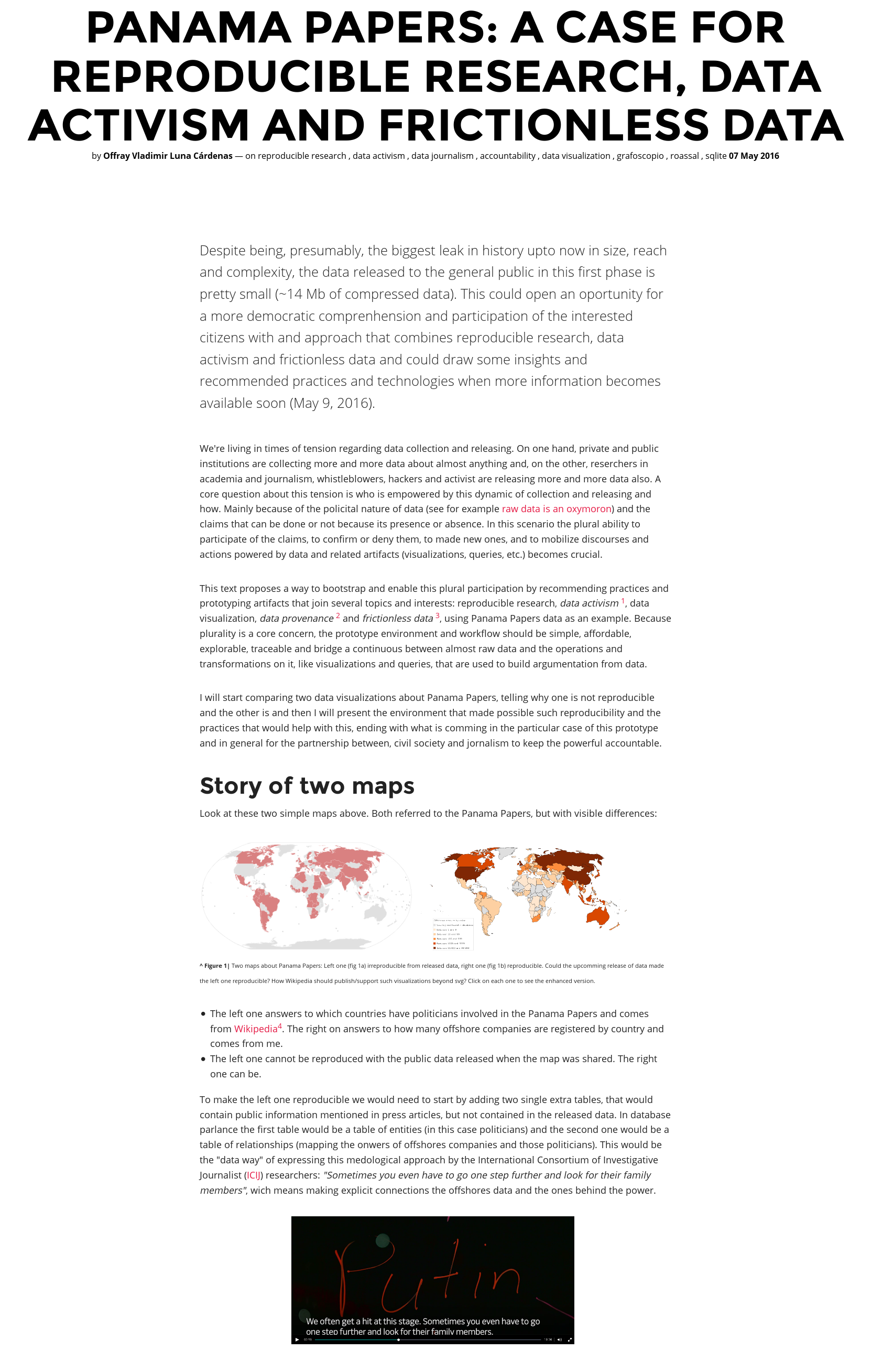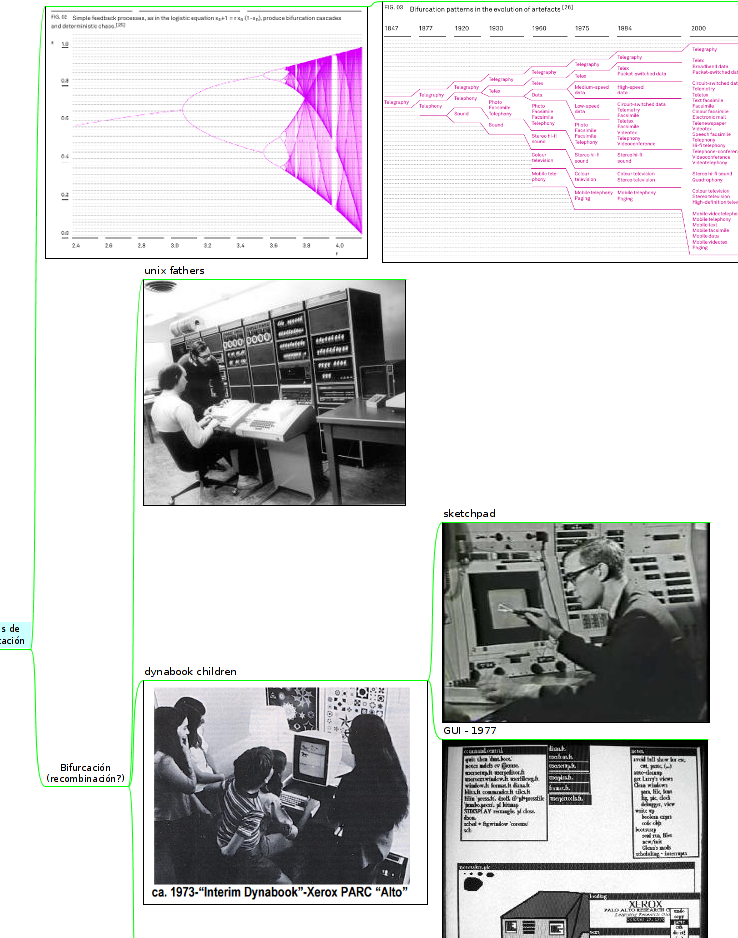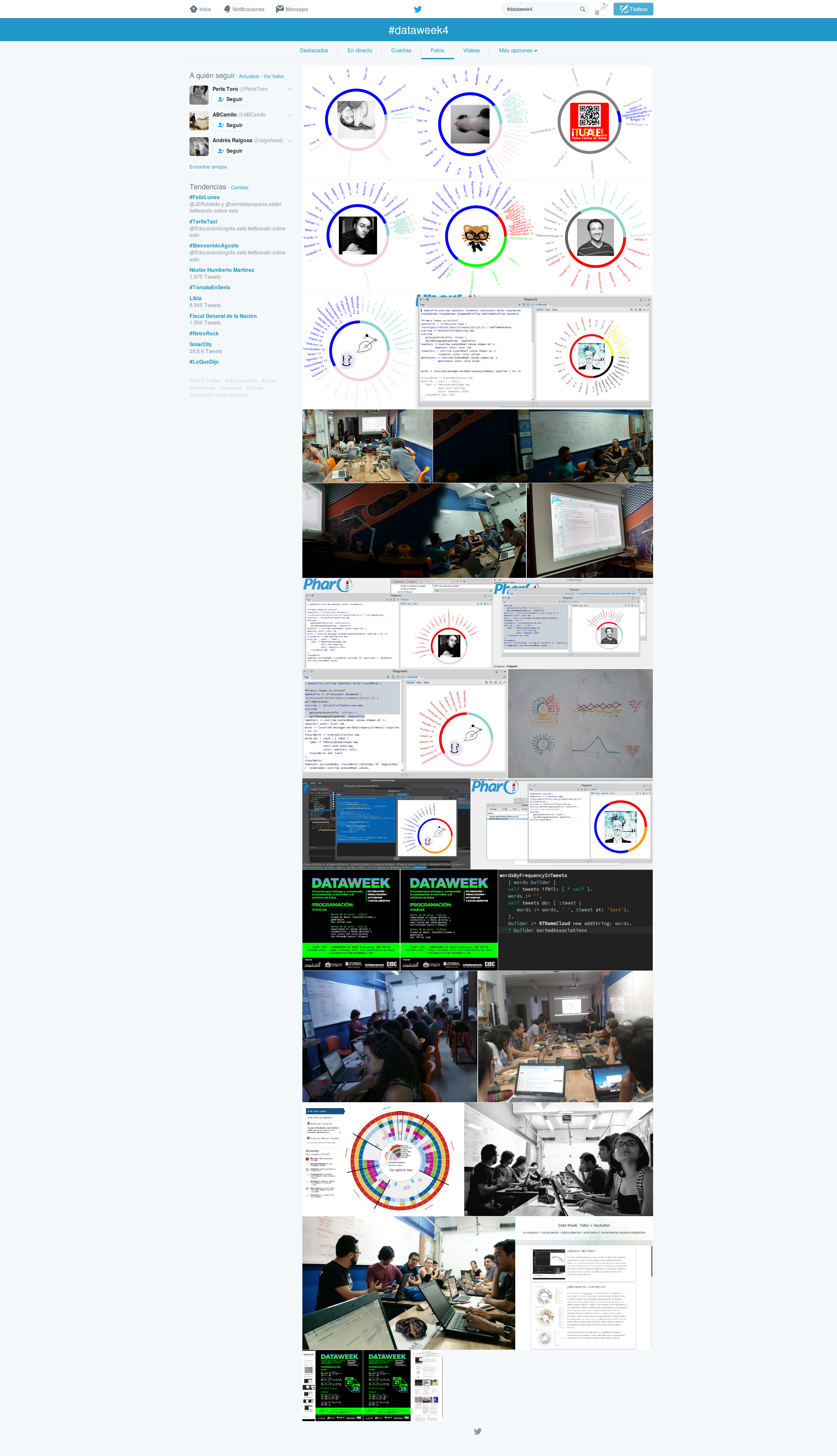Por ejemplo, según comentaron, la inversión en desarrollo de interfaces gráficas de usuarios se suele posponer por los altos costos que implica el diseño y la puesta a prueba de ellas. Algo similar sucede con las traducciones y localizaciones, pues requieren de personas con conocimiento situado. Adicionalmente, muchos proyectos paran sus actividades una vez el primer empujón institucional y financiero cesa, y por lo tanto sus características quedan congeladas en el tiempo o caducan por falta de soporte.
Es interesante como Grafoscopio ha evitado varias de estas fallas al hacer elecciones extrañas como ser desarrollado en Pharo (que de entrada le da interfaz gráfica y modelos de persistencia de datos ad-hoc), organizando talleres informales como las Data Week y las Data Rodas que crean conocimiento localizado y hacen una diglosia puente en lugar de abismo y basarse en las economías del cuidado y los afectos, reconociéndolas para no requerir tanto dinero inicial. Si bien se comparten las fragilidades de los proyectos de pequeña y mediana, por ejemplo respecto a el número pequeño de desarrolladores, vale la pena visibilizar también estas estrategias diferenciadas para lidiar con estos problemas comunes.


